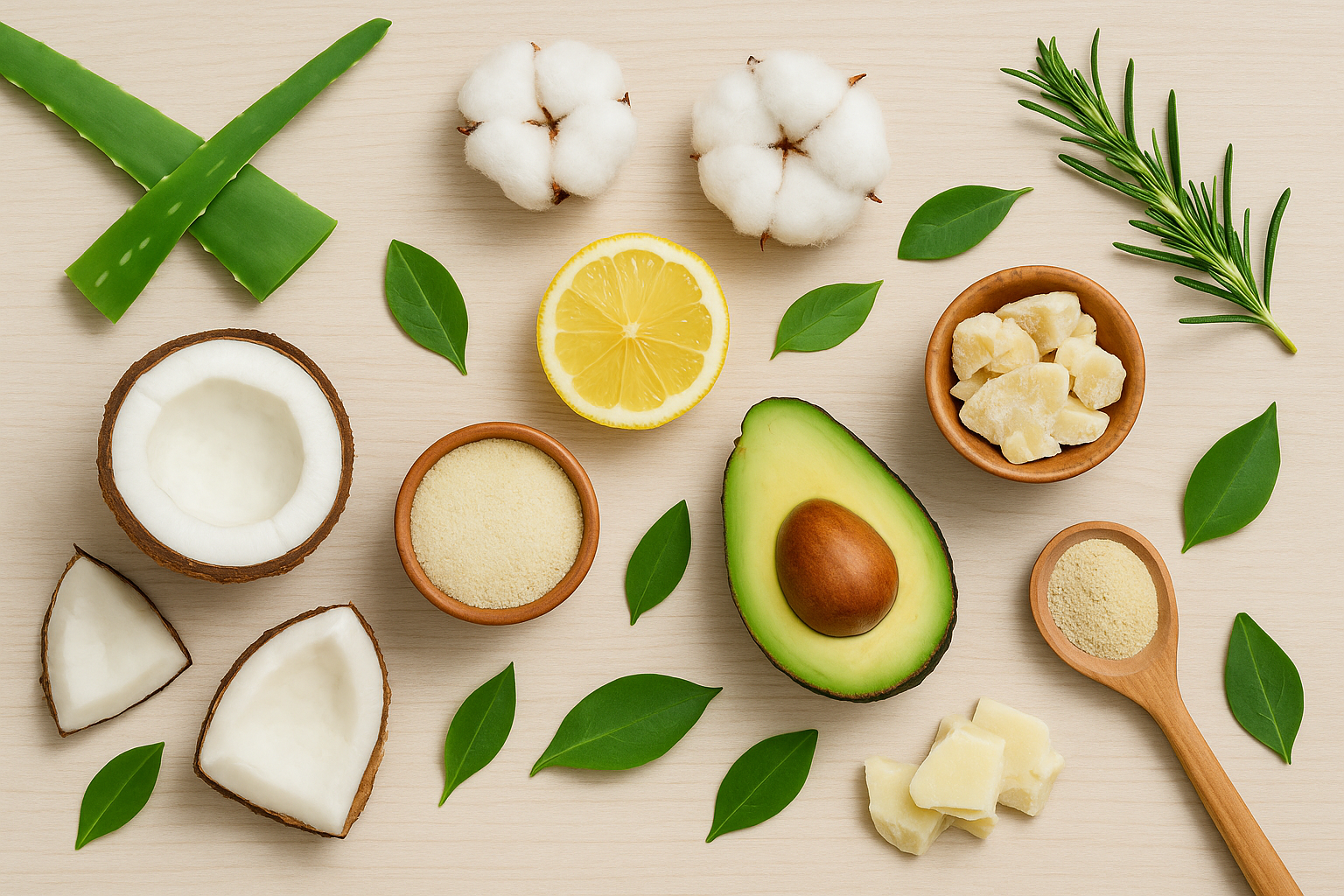Bakuchiol, which has gained popularity as a safer and more natural alternative to retinoids, has become one of the most sought-after ingredients lately. We've compiled information about this versatile and exciting ingredient for you.
What is Bakuchiol?
The seeds of the Psoralea corylifolia plant, also known as babchi , have been used for many years in Ayurvedic and traditional Chinese medicine to treat various skin conditions. Bakuchiol, named after the Sanskrit word "bakuchi," is an active ingredient isolated from the plant's seeds through various purification processes.
Bakuchiol's effectiveness is backed by scientific research, as well as its centuries-old history. Before delving into the details of this promising ingredient, let's briefly examine retinoids, considered the gold standard in anti-aging skincare.
Retinoids: The Gold Standard in Skin Care
Retinoids are active ingredients derived from vitamin A and come in various forms, including retinol, retinal, and retinyl palmitate, with retinoic acid being the most effective. Clinical studies have shown that retinoids are effective in treating wrinkles, hyperpigmentation, acne, and other skin conditions. However, due to side effects such as irritation, dryness, peeling, redness, and burning, their use may be problematic for some skin types.
Effects of Bakuchiol on the Skin
Although bakuchiol isn't chemically similar to retinoids, it shares significant similarities in its anti-aging and anti-blemish effects. A 2014 study found that, like retinol, bakuchiol stimulates anti-aging genes.
Bakuchiol's skin-regenerating, anti-inflammatory, and anti-acne effects have also been scientifically proven. By blocking the enzyme tyrosinase, which plays a role in melanin synthesis, it supports even skin tone and has an anti-blemish effect. Furthermore, thanks to its powerful antioxidant properties, it reduces hyperpigmentation. It also boosts hydration by supporting hyaluronic acid synthesis, which helps restore skin's moisture balance.
Effects Supported by Clinical Research
A 2019 clinical study by Dhaliwal and his team compared 0.5% bakuchiol to the same amount of retinol. After 12 weeks, bakuchiol reported similar improvement in wrinkles and blemishes as retinol, but more flaking and sensitivity was observed in the retinol group.
Another study tested a lotion containing 1% bakuchiol on 16 volunteers aged 41 to 60. After 12 weeks, significant reductions in wrinkle depth and skin roughness were observed. Significant improvements were noted in elasticity, firmness, and skin tone. These positive effects began to be seen from the fourth week of the study and became more pronounced by the 12th week.
How We Used Bakuchiol
Bakuchiol is a revolutionary ingredient in skincare with its multifaceted effects. Its safety on sensitive skin and during pregnancy, along with its ability to prevent sun sensitivity, are among its greatest advantages. In our Baku Glow Renewing Oil serums, we've combined this valuable ingredient with nourishing botanical extracts like rosehip seed oil, oil-soluble vitamin C, sea buckthorn oil, and astaxanthin.
By taking advantage of the natural and effective skin care benefits offered by Bakuchiol, you can experience a safe and effective anti-aging care experience!
References
- Chaudhuri RK, Bojanowski K. Bakuchiol: a retinol-like functional compound revealed by gene expression profiling and clinically proven to have anti-aging effects. Int J Cos Sci 2014; 36: 221-230.
- Dhaliwal S, Rybak I, Ellis SR et al. Prospective, randomized, double-blind assessment of topical bakuchiol and retinol for facial photoaging. Br J Dermatol 2019; 180: 289-296.
- Chaudhuri RK, Marchio F. Bakuchiol in the management of acne-affected skin. Cosmet Toilet 2011; 126: 502-510.
- Bluemke A, Ring AR, Immeyer J et al. Multidirectional activity of bakuchiol against cellular mechanisms of facial aging – experimental evidence for a holistic treatment approach. Int J Cosmet Sci 2022; 44: 377-393.
- Sadgrove NJ, Oblong JE, Simmonds MSJ. Inspired by vitamin A for anti-aging: searching for plant-derived functional retinoid analogues. Skin Health Dis 2021; 1:e36.


